- Home
- Lynne Connolly
The Making of a Marquess Page 2
The Making of a Marquess Read online
Page 2
I did as I promised. I told no one that I know where you are, if you are alive or not. If you wish to remain dead, then you need do nothing.
But Ben, Louis is ruining more than the estate. He is ruining the people who depend on it for their living. The dwellings your steward is supposed to oversee are tumbling down, and so are the walls. Everything except the house is falling into disrepair. He has sold your father’s fleet of trading ships. The only reason he has not sold the coal mine is that it is on entailed land.
You may have given him free rein over the estate as compensation, out of guilt or for Honoria’s happiness. But he has more than made up for that one moment of madness on Hampstead Heath. It is time you came home. If you do not come now, then there is no point returning at all.
His brother is serving in the army, and can do nothing to help as long as his brother is alive.
If you wish this to happen, then I swear to you I will do nothing. I will watch the destruction continue, or rather, keep as far away from it as I can. But if you are not home by August, you will lose everything, including your name. Even if you return later, you will face a legal battle to regain what is yours. And the way the law is, you will most likely fail. If he claims the marquessate, the law will hold it as his.
I will remain your friend, and I will not say a word, unless you instruct me to. If you choose not to reply, I will count that as a signal of your death. And I will mourn, but I may continue to correspond with my friend in the colonies, Benjamin Thorpe. He is a good man.
Yours,
Henry Evington
Ben carefully folded the letter and put it aside.
Hal had proved the best kind of friend. Although Ben had not seen him since the day he had hastily embarked on the first ship to leave the Pool of London, they had written often. At least once a month, although the letters were long delayed.
After his father had cast him off, Ben determined never to contact the man again. He’d made such a mess, this being only the latest in a series of scandals, that he longed for a clean sheet, a new start.
The night before his rash challenge, his father had carpeted him, threatening to beat him, but it was the grief on his father’s face rather than his empty promises that had distressed Ben. He’d spurned the match his parents had chosen for him, deciding that Lady Dorothea Rowland was too staid for his taste, and turned to chasing Honoria instead.
His mother had sobbed out her distress. They were better off without him. And her last words, “You would be better dead, Ben. I fear I have done you a bad turn somehow, that I failed you.”
Those words had hurt him more than the opprobrium his father had heaped on his head. That his mother blamed herself.
Consequently, when he’d met Louis, he’d issued the challenge. He had lost his parents’ love, so losing Honoria had been the last straw.
After the duel, he’d rushed to the docks and taken the next ship to leave, never minding where it went. It had sailed to Boston on the tide, and here he still was.
Louis had survived, for which Ben was profoundly grateful, but he had no wish to return home, or to contact his cousin. He’d made such a mess of everything; he was better off dead.
Maybe I should go home. Instant discomfort made him shift his stance.
His marriage had ended when his wife died trying to birth their child, and he’d inherited a business from his father-in-law, Jeremiah Foulson, when he’d died shortly after his daughter.
Ben was successful, a merchant in his own right, a life he savored more than he had ever enjoyed his life as the heir of a marquess.
Ben gazed out the window at the ships below. He owned some of them. Men scurried about on the dock, loading and unloading. This country would be far greater than most people in the civilized world imagined. He’d visited the interior, and there was far more of it than appeared on the maps. And he still hadn’t reached the other coast. There was so much to do and discover here, unlike his cynical, well-mapped homeland.
But that elm tree in the Home Park—did the initials he’d carved there still exist? And that dip past the rose garden where a boy could hide for hours—was it still there?
If he went home, he’d have to stay for at least a year, maybe more. His duties in Britain would demand his attention. Eventually he could appoint a manager for the estates at home. If Louis had reduced them so much, that was definitely possible.
Maybe find a new wife. Someone intelligent, who could look after affairs at home. If he stayed for the year, he could marry and start his nursery, provide an heir to cut Louis off from creating further depredations. Another duty wife, but this time they would live on opposite sides of the world. More a business partner.
A sense of regret lingered. His dreams of having someone he could share a life with, loving her and having love in return, had vanished. He doubted that would happen now.
Nonsense. Sentimental nonsense at that. Better he put youthful dreams of romance where they belonged; at the bottom of the sea.
Ben would have sworn to hell and back that he cared little for the estate and the title he’d abandoned. But he was wrong. His inheritance burned deep, a part of him. He’d been bred to care for it, to support it, to ensure its health and well-being and that of everyone who belonged to it. If Louis had proved a worthy master, Ben could have kept away with good conscience, but now? He could not do it.
Even if Louis had been near death’s door after the duel, Ben had carried that guilt for too long.
Ben stared through the bristling masts to the horizon, where gray sea met gray sky. Already his mind teemed with plans, possibilities. He did not fool himself that regaining what he had lost would be easy. But for his father’s sake, or for the name he still bore, he should do it.
He stared back out to sea.
He would go.
Chapter 3
Dorothea Rowland closed the door of the bedroom assigned to her and breathed a heavy sigh of relief. Arriving at Cressbrook House in the early afternoon with a plethora of other guests had exhausted her social tolerance. Now she had some time to herself, and she would make the most of it.
She looked around. Her traveling trunk had not arrived yet, but the maid had promised a footman would bring it up directly, which probably meant at least two hours.
This room was not the best in the house; with prestigious guests included in the party, she could hardly expect that. But it was pleasant enough, if a little spartan, tucked at the end of a long corridor that also contained the rooms assigned to her brother and sister-in-law.
Being, at the age of thirty, an older spinster, destined to become that dreadful thing, an unmarried woman, she had often been placed in less-than-pleasant surroundings. This room would serve her well enough. The old-fashioned four-poster bed at least sported a modern mattress, which boded well for her night’s sleep. An upholstered chair was set by the window, and a chest of drawers capacious enough to hold her modest belongings stood against the wall opposite. She had no bureau, but the table near the window would suffice for writing her letters once she’d cleared it of its motley collection of ornaments and empty vases.
Best of all, since she had a corner room she had windows on two sides. Even better, they opened easily and stayed that way, since they were of the old-fashioned latched type instead of modern sashes. Cool air rushed in, bringing a gentle breeze that made Dorothea groan in pleasure. The tiny, airless rooms in the inns they’d used had given her sleepless nights on the way here. She was tempted to lie down on that mattress and send her excuses for dinner.
The windows gave a view of the front of the house, the Home Park stretching to the horizon. The mature elms marching down either side of the drive added a touch of majesty.
The clock on the mantelpiece struck two. Two hours to dinner. Finding her bag, Dorothea plucked out the leather portfolio and opened it to reacquaint herself with the contents
. Not that she needed to, but every time she touched the thing a sense of exhilaration flooded her. No more the discarded spinster, Dorothea now had a purpose in life. She was a member of the Society for Single Ladies, and she was here on a mission. She was supposed to meet the officer from the Crown Office, Sir James Hunstone, within the hour. So she could do no more than freshen up before she went downstairs. She glanced at the bed regretfully. No time to rest.
Someone knocked at the door, and Dorothea hastily closed the portfolio and shoved it back in her bag. Her sister-in-law’s maid, Brooks, entered, two footmen hauling Dorothea’s trunk in her wake. “My mistress says you must use me as much as you wish, ma’am. Would you like to change now?”
Dorothea shook the skirts of her traveling gown ruefully. “I’m afraid it was rather muddy today. What do we have?”
Twenty minutes later, arrayed in her new gown of blue striped lustring, her silver SSL pin tucked behind the robings on the left-hand side, Dorothea set forth to meet the officer of the Crown.
Cressbrook House was larger than she’d been led to believe, but the domestic staff were friendly, if reserved. She got directions to the small green parlor easily enough. Exhilaration filled Dorothea anew. At last, she was doing something useful, something that mattered. Dwindling into an old maid, even with a family as kind as hers, was not a fate she looked forward to.
Her first assignment for the SSL was a personal connection. She’d entered society two years before the beauteous Lady Honoria Colt, and while she had not driven young men to their knees, she’d been noticed. Lord Brocklebank, Ben to his friends, had entered into a gentle courtship with her, and she’d been lost. But her father had bidden him wait for her to grow a little older, and he’d agreed. Although Dorothea knew Ben wasn’t in love with her, she’d fallen for him the instant she’d seen him.
She’d never forget her first sight of him. Brocklebank had stood out as the most handsome, the most desirable of them all, tall and elegantly built. A pang had hit her as sharp as a knife between her ribs, and she’d wanted him with every sinew in her young body. He’d been taller than her, a definite advantage, since no man wanted a wife who looked down on him. In her late mother’s words, Dorothea was “unconscionably tall.” Her quiet happiness at the unspoken arrangement between them had colored her life. She’d had every expectation that their time together would be happy. She had love enough for two. Not that she had ever told him. Her shyness at the time had precluded that.
Then, the next season, Lady Honoria Colt had descended on society and drawn men like iron filings to a magnet. Dorothea had pale hair; Honoria’s was of spun gold. Dorothea’s features were not remarkable, while men wrote sonnets to Honoria’s fine eyes and clear complexion. Ben had abandoned Dorothea—or rather, smiled at her and told her they would always be friends, would they not? He’d left it to her brother to break the bad news to her, that the negotiations for the marriage contract would not now take place.
Dorothea had berated him bitterly, but not to his face, and the negotiations for the marriage settlement melted away as if they’d never been. Lady Honoria became the prize to be won.
Then, after the duel, Benedict had disappeared, never to return. Dorothea had pined for him, but tried to move on. At the time, she’d expected to make some kind of a match, but the seasons had passed without one. There had always been someone more lovely and accomplished than her. And shorter.
Now she would remember her advantages, not her losses. She had much to be thankful for. This investigation would put an end to an unfortunate chapter in her life, as Angela had known when she’d handed her the portfolio.
Dorothea had paid only one visit to Cressbrook House before, but she remembered it well. That summer when she’d been happy. She was a different person now, with a different future to plan for. Remember that, and finally close the door on youthful dreams.
Left, then right at the painting of the miserable child—yes, because the second door on her left led to the room she’d been looking for. Unmistakably the small green parlor. The upholstery on the sofa set before the unlit fire was green, the walls were green, and so were most of the ornaments. An edge of shabbiness marked the room, and a dullness signifying that it did not receive much love from the housemaids.
A dapper gentleman sat on the green leather armchair by the fireplace. He rose at her entrance. “Miss Rowland?”
She dropped a short curtsy to match his bow. “Indeed. And you are Sir James Hunstone.”
He nodded. “You do not object to spending time alone with a gentleman? I had thought you would bring your maid.”
Dorothea gave a most unladylike snort. “And have our business discussed in the kitchen before the day is out? I think not, sir. I doubt you will pounce on me with unalloyed passion.”
The gentleman raised a slim brow. “You don’t do yourself justice, ma’am.” He was about fifty years old or thereabouts, a neat appearance indicating a man who did not allow fashion to rule his life. While respectable, his maroon coat and green waistcoat did not display extravagant embroidery, spangles or gilded buttons, but they were perfectly acceptable. Instinctively, Dorothea liked him.
He sat down and crossed his legs, while she disposed her skirts comfortably.
“Shall I begin?” he asked. When she nodded assent, he went on. “Mr. Louis Thorpe contacted the coroner about declaring his cousin dead. That means as soon as the courts confirm the death, Louis can claim the marquessate as the next heir in line. When it is ratified by the Lord Chancellor and approved by the King, he will inherit the estate. However, we are by no means certain that Lord Brocklebank is dead, and if he is, what became of him? Why has nobody heard from him?”
Dorothea ignored the inevitable pang when the prospect of Ben’s death was spoken of so calmly. What else did she expect? “I agree. And the usual period to wait until death is declared is seven years after the person has disappeared, is it not?”
Sir James’s thin lips flattened. “Lord Hardwicke and I are deeply concerned that Lord Brocklebank met his end, either as a result of injury sustained in the duel, or shortly after. Nefariously. You understand?”
Dorothea nodded. “Yes. Duels are illegal, and if his death occurred as a result, that makes Louis a murderer.” The pang turned into an ache. “I never considered that.” Surely not. Louis Thorpe was many things, but not a murderer. “Are you considering removing the title altogether?”
Sir James raised his brows. “Not while there is a legitimate heir in Louis Thorpe’s younger brother, and after that, his uncle. If we did that, the House of Lords would turn on us like an angry tiger. Or a collection of them.” His forehead pleated in a frown. “A herd of tigers? A bunch?”
“A prowl?” she suggested, and received a nod and a reluctant smile.
“We must be sure of our facts, ma’am. If Mr. Thorpe was responsible for Lord Brocklebank’s death, we cannot allow him to profit from that. However, the case would be difficult, and we have no wish to drag Mr. Thorpe through the mud if we are not sure of our facts.”
“I see.” So Ben’s death could go unavenged. After all this time, what proof could they uncover? Dorothea tried to think of him as Lord Brocklebank, nothing to do with her or the man she’d set her girlish heart on eight years ago.
Sir James lifted his hand, turning it in an elegant flip and curving his fingers to her. “And then we have the problem of the estate. Mr. Thorpe’s extravagance is growing worse. I would appreciate anything you have to tell me from that aspect of the affair. We are concerned he will create a weak link, that he will plunge a great estate into debt that would enable others to take advantage.”
He was listening to her, treating her as someone who mattered. Dorothea knew exactly what she could share with the officer of the Crown. “Thank you for being frank, sir. I will try to be equally honest with you. I am empowered to tell you that Mr. Thorpe has borrowed a considerable sum from Ch
ilders’s Bank. On demanding payment, Childers’s received no answer except for a request for more loans secured on the estate. Naturally, it is reluctant to do that until Mr. Thorpe is confirmed as the Marquess of Belstead. Miss Childers wishes to ensure the security of the existing loans and assure herself that Mr. Thorpe has the security to ask for more.”
“Miss Childers is far more formidable than her appearance indicates,” Sir James murmured.
Angela was fair-haired, blue-eyed, and very beautiful. Her refusal to marry was because of her vast wealth, not for want of proposals. Her fragile loveliness had caused many people to assume she did not have a soul of iron. She had proved them wrong.
“She is,” was all Dorothea said now. “The bank is deeply concerned that Mr. Thorpe will renege on his current debts. If he accedes to the title, the bank will lose the ability to cast him into debtor’s prison. Childers’s Bank will not enter into unsecured loans.”
Sir James touched his lip. “It is almost inconceivable to consider how much money that young man has gone through in the past two years, and his debts have increased recently. His lordship made a grave mistake trusting Mr. Louis Thorpe with his affairs.”
The last anyone had heard of Lord Brocklebank was a letter granting his cousin power of attorney in his absence, which had been sent four months after his lordship’s disappearance. He had enclosed it in a letter to his mother, begging her forgiveness for his transgressions. Nobody could discern where it had been sent from, since the outer wrapping had been destroyed, and it had magically appeared at the London offices of the estate’s man of business. However, the handwriting had undoubtedly been his lordship’s, properly drawn up and witnessed, and the enclosed letter mentioned a few matters known only to the family, small incidents from Brocklebank’s childhood confirmed by his parents.
“As I recall, Mr. Thorpe had not shown any sign of extravagance before he married Honoria.”

 Boundless (The Shaws)
Boundless (The Shaws) Sinless (The Shaws)
Sinless (The Shaws) The Girl with the Pearl Pin
The Girl with the Pearl Pin Hosts to Ghosts Box Set
Hosts to Ghosts Box Set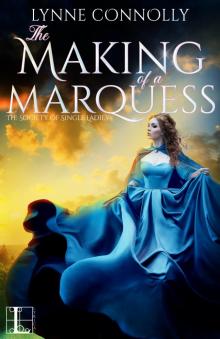 The Making of a Marquess
The Making of a Marquess Boundless
Boundless Beauty of Sunset
Beauty of Sunset Virginia And The Wolf
Virginia And The Wolf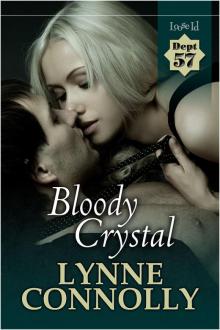 Department 57: Bloody Crystal
Department 57: Bloody Crystal Temptation Has Green Eyes
Temptation Has Green Eyes Forged by Love: Even Gods Fall in Love, Book 4
Forged by Love: Even Gods Fall in Love, Book 4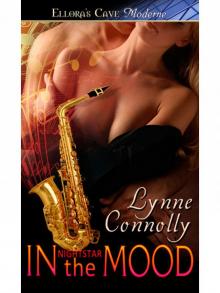 IntheMood
IntheMood Hareton Hall: Richard and Rose, Book 6
Hareton Hall: Richard and Rose, Book 6 ShiftingHeat
ShiftingHeat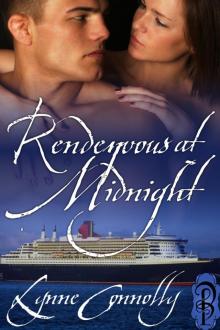 Rendezvous at Midnight
Rendezvous at Midnight Yorkshire: Richard and Rose, Book 1
Yorkshire: Richard and Rose, Book 1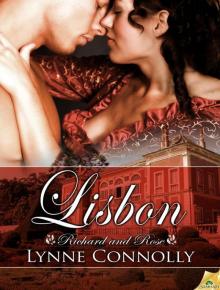 Lisbon: Richard and Rose, Book 8
Lisbon: Richard and Rose, Book 8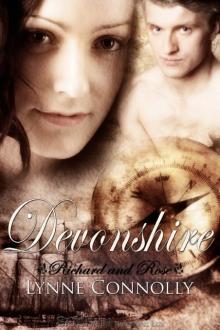 Devonshire: Richard and Rose, Book 2
Devonshire: Richard and Rose, Book 2 Venice
Venice War Chest: Even Gods Fall in Love, Book 5
War Chest: Even Gods Fall in Love, Book 5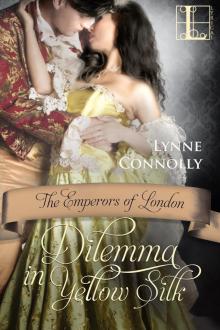 Dilemma in Yellow Silk (Emperors of London)
Dilemma in Yellow Silk (Emperors of London) BornontheBayou
BornontheBayou Dauntless (The Shaws)
Dauntless (The Shaws) Brutally Beautiful
Brutally Beautiful Lightning Unbound: Even Gods Fall in Love, Book 1
Lightning Unbound: Even Gods Fall in Love, Book 1 FascinatingRhythm
FascinatingRhythm Fearless
Fearless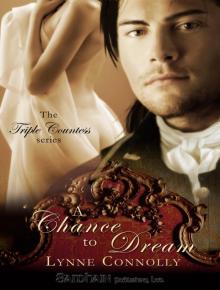 A Chance to Dream
A Chance to Dream Mad for Love: Even Gods Fall in Love, Book 2
Mad for Love: Even Gods Fall in Love, Book 2 Sinless
Sinless SailtotheMoon
SailtotheMoon Wild Lavender
Wild Lavender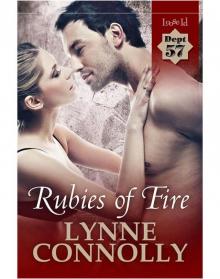 Department 57: Rubies of Fire
Department 57: Rubies of Fire Maiden Lane
Maiden Lane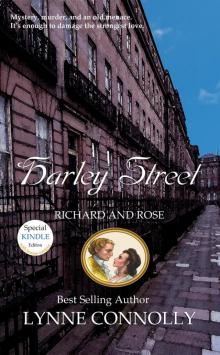 Harley Street
Harley Street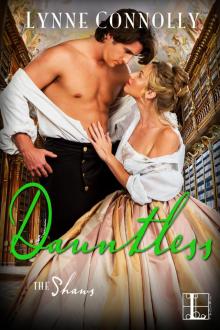 Dauntless
Dauntless NicenEasy
NicenEasy It Started at Waterloo
It Started at Waterloo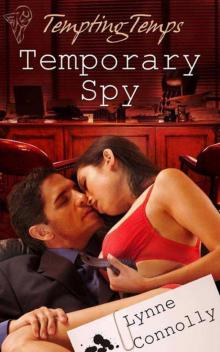 Temporary Spy
Temporary Spy BorntobeWild
BorntobeWild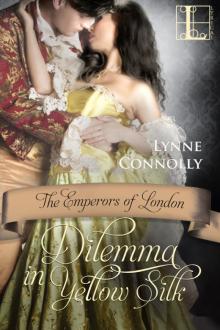 Dilemma in Yellow Silk
Dilemma in Yellow Silk Yorkshire
Yorkshire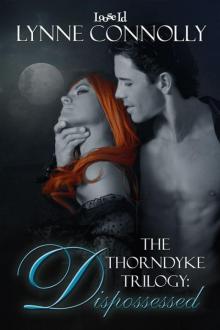 The Thorndykes 1: Dispossessed
The Thorndykes 1: Dispossessed The Thorndyke Trilogy 2: Dancing at Midnight
The Thorndyke Trilogy 2: Dancing at Midnight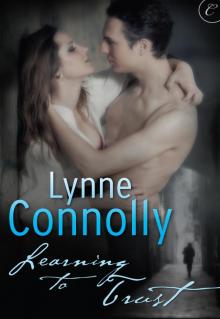 Learning to Trust
Learning to Trust Her Quicksilver Lover: Even Gods Fall in Love, Book 6
Her Quicksilver Lover: Even Gods Fall in Love, Book 6 Loving Lucy
Loving Lucy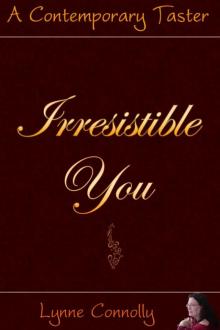 Irresistible You
Irresistible You Arrows of Desire: Even Gods Fall in Love, Book 3
Arrows of Desire: Even Gods Fall in Love, Book 3 Unbroken
Unbroken Devonshire
Devonshire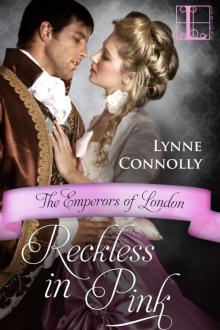 Reckless in Pink
Reckless in Pink Rogue in Red Velvet
Rogue in Red Velvet